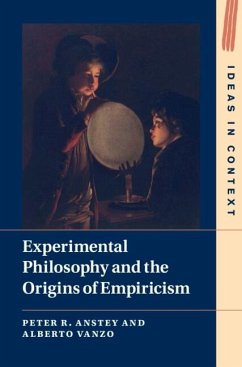
Aphorisms and Reflections from the works of T. H. Huxley (eBook, ePUB)

PAYBACK Punkte
0 °P sammeln!
In "Aphorisms and Reflections from the works of T. H. Huxley," the reader is presented with a meticulously curated collection of Huxley's most incisive and thought-provoking observations. This volume encapsulates his reflections on science, religion, ethics, and society, showcasing his signature style characterized by clarity and intellectual rigor. Written during the Victorian era, a time marked by rapid scientific advancement and cultural upheaval, Huxley's aphorisms serve as a testament to the interplay of empirical inquiry and philosophical contemplation, resonating with enduring relevance...
In "Aphorisms and Reflections from the works of T. H. Huxley," the reader is presented with a meticulously curated collection of Huxley's most incisive and thought-provoking observations. This volume encapsulates his reflections on science, religion, ethics, and society, showcasing his signature style characterized by clarity and intellectual rigor. Written during the Victorian era, a time marked by rapid scientific advancement and cultural upheaval, Huxley's aphorisms serve as a testament to the interplay of empirical inquiry and philosophical contemplation, resonating with enduring relevance to contemporary discourse. Thomas Henry Huxley, often referred to as "Darwin's Bulldog" for his defense of Darwinian evolution, was a pivotal figure in 19th-century science. His rigorous approach to biology and passionate advocacy for scientific education were deeply influenced by his background in medicine and his engagement with evolutionary theory. Through this work, Huxley sought to distill complex ideas into accessible insights, aiming to provoke reflection and encourage a scientific worldview among his contemporaries. For those interested in the confluence of science and philosophy, this collection is a worthy addition to any library. It invites readers to ponder profound questions and encourages a critical examination of the foundations of knowledge, making it an essential read for scholars, students, and anyone captivated by the pursuit of truth.
Dieser Download kann aus rechtlichen Gründen nur mit Rechnungsadresse in A, B, BG, CY, CZ, D, DK, EW, E, FIN, F, GR, H, IRL, I, LT, L, LR, M, NL, PL, P, R, S, SLO, SK ausgeliefert werden.













